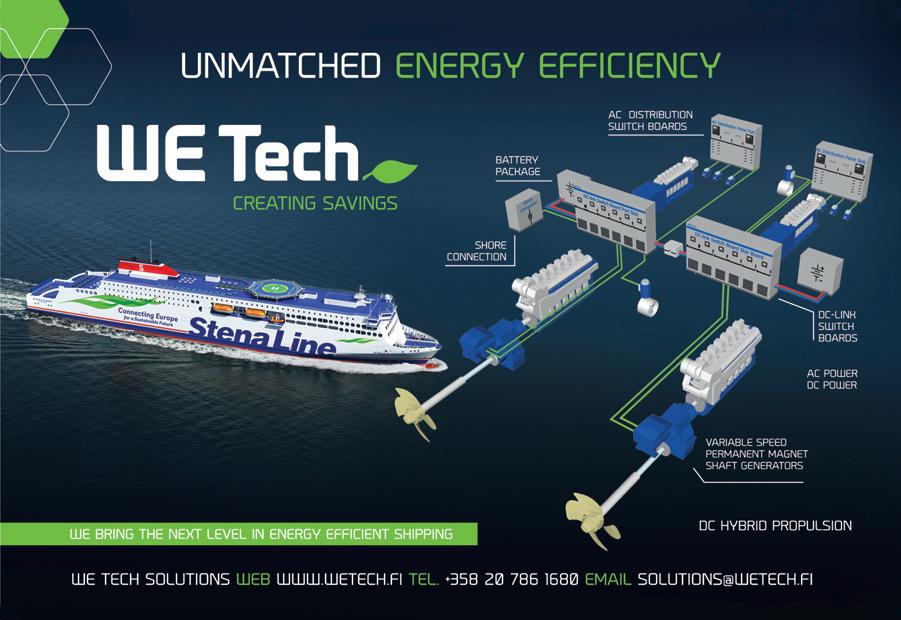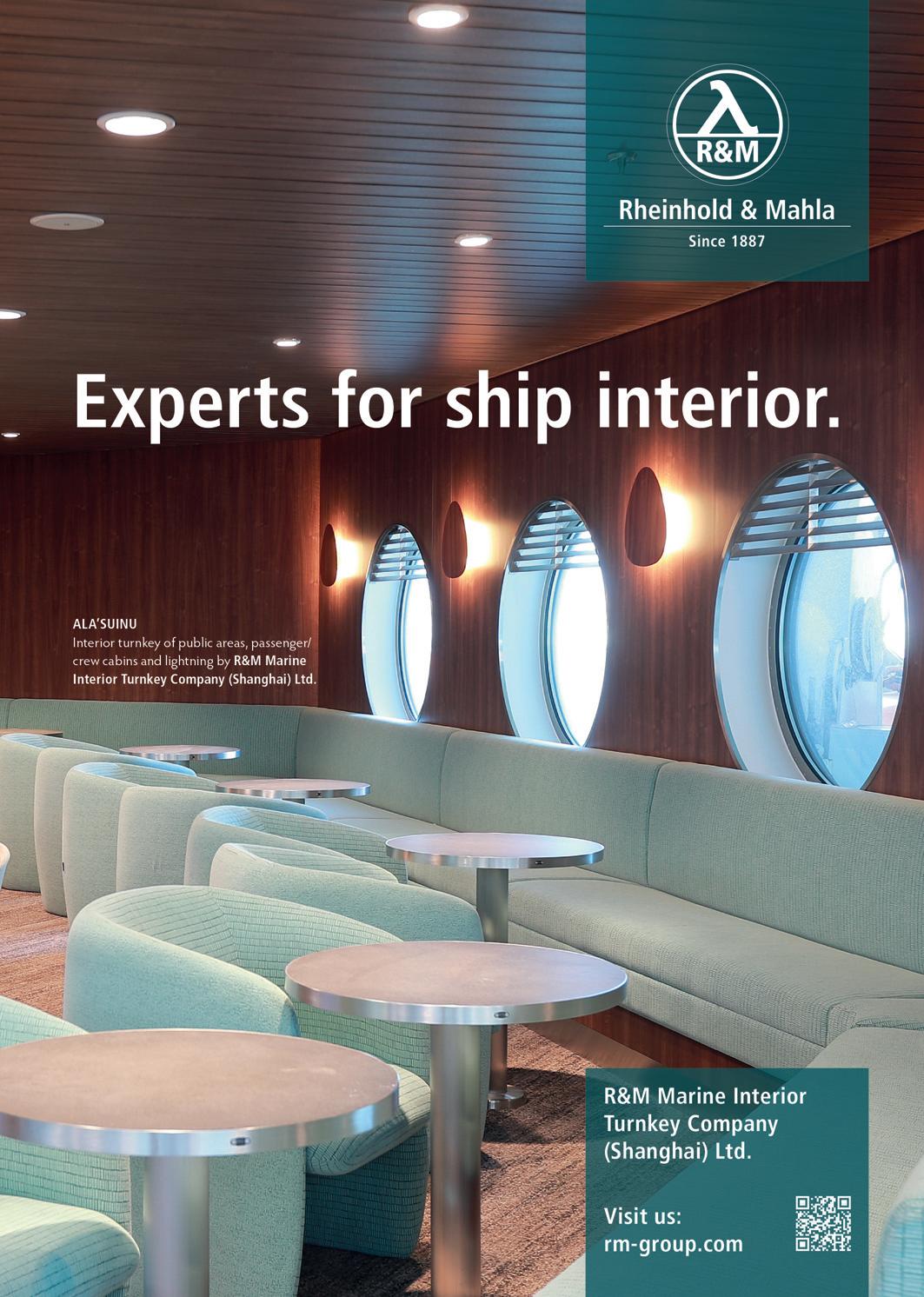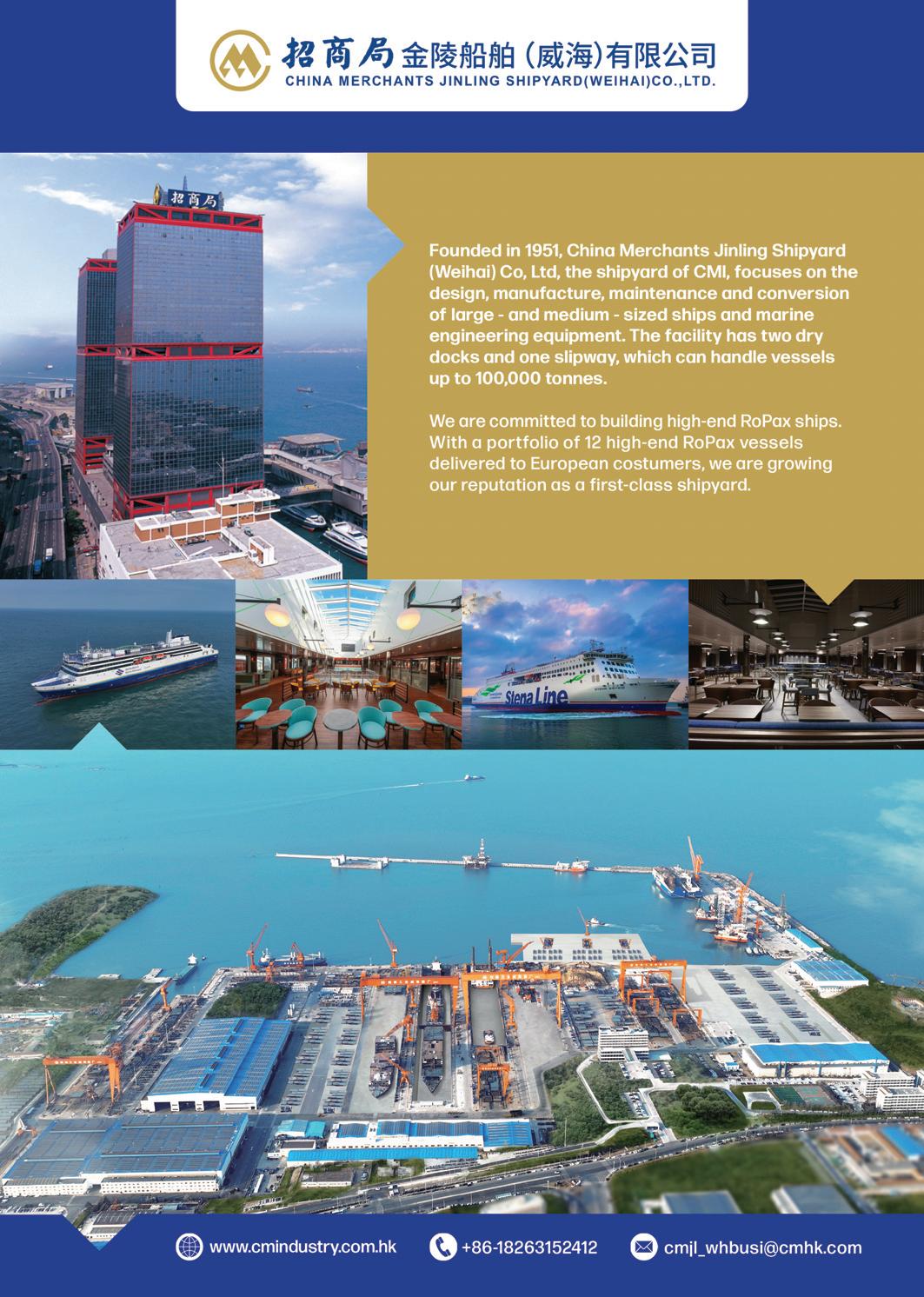
















Stena RoRo is a leading innovator of roll-on/roll-off cargo and passenger concepts. The company offers RoRo and RoPax vessels, plus associated services, enabling chartering for first-class operators all over the world. Managing Director Per Westling explained to Hannah Barnett the company’s next step: preparing for the energy transition.
Stena RoRo is expert at adapting, developing and anticipating the needs of the shipping industry now, and for the future. This is exemplified by its innovative E-Flexer series, which indicates the company’s remarkable capacity to work three steps ahead.
“We know that the most efficient way of enabling the energy transition for a ship owner is to replace old vessels with new ones,” said Per Westling, Managing Director: “and when I say new vessels, I don't mean conventional, fossil-based combustion engines. We are talking about dual fuel engines with a good system for battery power. That is what the E-Flexer series provides.”
The E-Flexer is a continuation of an ongoing tendency for the company to exist ahead of the curve. Since its establishment in 1999, Stena RoRo has designed, contracted, built and delivered

scores of innovative newbuild vessels for clients. It currently operates a fleet of 12, with three newbuilds under construction. Turnover for 2023 was €101 million.
This success is built on strong logistical teamwork across its sites. The company employs skilled engineers at both its HQ in Gothenburg, Sweden, and at its shipyard CMI Jinling, in China.
“We have 24 people working in the Chinese shipyard; many are local people,” said Mr Westling. “All staff are focused on delivering something on time and on budget that is of the highest quality. And we've been very successful. I'm extremely proud of that.”
The E-Flexer series is based on a concept involving vessels larger than the modern standard RoPax ferries, and, as the name suggests, the design is highly flexible.




Each ship is tailored to the customers’ needs, both commercially and technically. Optimised design of the hull, propellers and rudders ensures that the vessels are at the forefront when it comes to sustainability, performance and cost.
The company has delivered 10 of these innovative vessels since 2019, with three more currently in the works for upcoming years.
“Over the last 18 months we have been refining our designs for the E-Flexer newbuilds,” said Mr Westling. “We are increasingly developing more advanced technologies for the reduction of CO 2 by incorporating battery technology, renewable energy and various types of alternative fuels into our designs.”

The engines are of the multi-fuel type and can run on LNG, conventional marine fuel (MGO) or biodiesel. The vessels have been designed in line with future environmental requirements and can meet both existing and future international require ments by a wide margin.
The newer vessels will also be engineered with the classification society notation ‘battery power’, so eventually they will be able to utilise batteries as a means of propulsion. “We are working towards being able to grow battery life for vessels, so they are being future-proofed,” said Mr Westling. “We currently have three vessels with a large battery capacity on order.”
Additionally, the company has recently placed an order for two cargo vessels with


completely new dual fuel technology, using methanol as the primary fuel, to trade on the Irish Sea.
“The E-Flexer concept allows for the evolution of our vessels to operate eventually at net zero, or even absolute zero, because they will be able to switch between fuels and power from shore,” Mr Westling explained. “It means that in the future the ship will be completely fossil-free, thanks to features we put into the design now – and that has been a really important development.”
It is clear that one of the most important aspects of this future-proofing concept involves anticipating the advancement of battery power.
As a result, Stena RoRo is developing an efficient diesel-mechanic solution, which transfers power from the battery mechanically into the propeller shaft, using a PTI Unit. According to Mr Westling, this is more efficient than a diesel-electric principle, and the company is already, in theory, capable of transferring 6MGW of power, the equivalent of up to 20 knots.



“One day, if we have a sufficient number of batteries onboard, and they become more powerful, cheaper and lighter we will be able to trade a vessel at 20 knots purely on battery power,” he added: “but in the meantime, we have the backup of the normal combustion engines, which we can operate on gas, biodiesel or methanol in our case. It can be grey methanol, green methanol, or blue methanol. That gives

us tremendous flexibility to grow with the development of the technology and the regulatory framework.
“It’s not rocket science, but to put it all together in a system that suits many different operators is where the skill is required. And that's where the flexibility of the E-Flexer comes in. We can adapt our ships to our various international clients. Some like them red, some blue, some want cabins, some use them for a day service and so on.”
Stena RoRo has clients around the world, including Marine Atlantic, which operates in Nova Scotia and eastern Canada:
“We have worked with this company for many years for charters, and in early February we delivered it an E-Flexer,” said Mr Westling.
The company also works with the wellknown French operator, Britanny Ferries,
and has delivered them three E-Flexers, with two more to come.
Stena RoRo maintains a strong partnership with DFDS, the Danish international shipping and logistics company, and for which Stena is developing an innovative vessel for the Dover to Calais route. The company also took an order in December 2023 from Corsica Linea, the French shipping company that operates passenger, vehicle and cargo ferries in the Mediterranean Sea.
“We have a good technical foundation, but it's also important to have a solid, financial background,” said Mr Westling. “I think companies trust us and, as a result, lay a lot of responsibility for their future tonnage in our hands. Trust is very important when it comes to both suppliers and partners.”
Moving onwards, Stena RoRo is focused on enabling the market to catch up with the demands of the energy transition.

“The main challenge we are facing is access to green fuels,” Mr Westling concluded. “We can start with biodiesel, which is currently not very difficult to get hold of, but it is expensive. We have to look for other kinds of fuels; we are focusing on methanol but before we can get significant leverage on the energy transition, we need the market to grow.
“The fascinating thing with this job is developing relationships with businesses doing the same thing. It means that we build trust between our companies and can produce exceptional vessels for our clients: but it's also very encouraging to be able to participate in the green shipping transition. By building new ferries, we will have the ability to absorb new technologies and fuels.
“We are at the beginning of being able to be completely emission-free. That’s very exciting.”
n
